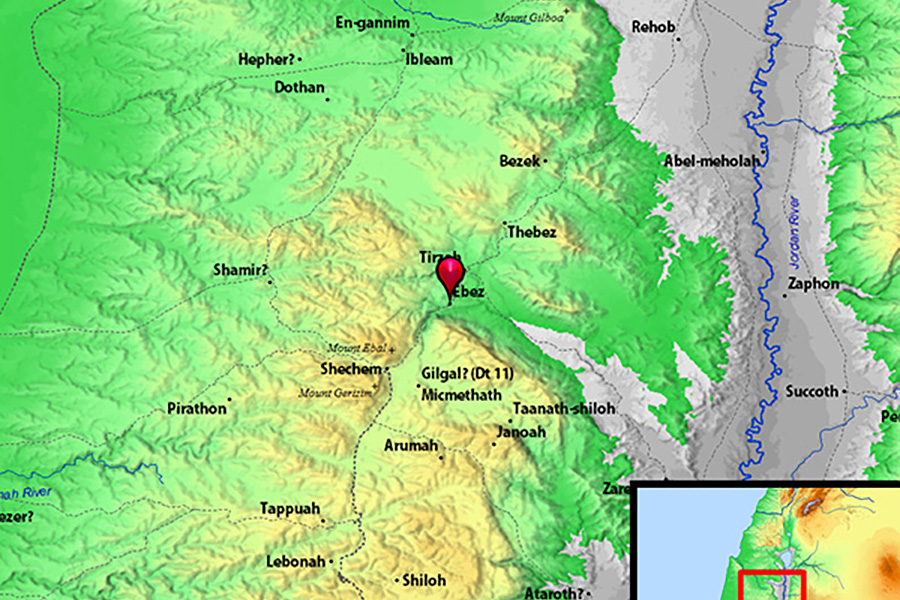The word nauakh (𐤍𐤅𐤇), nakh (𐤍𐤇), or “Noah” is associated with two meanings. The first meaning is that of “rest” from which the meanings of “to rest”, and “rested” are derived. The last association of the word is with the patriarch who survived the flood, 𐤍𐤅𐤇 (Nauakh).
𐤍𐤅𐤇 (Nauakh) is the 𐤀𐤁 (ab) of 𐤔𐤌 (Sham), 𐤉𐤐𐤕 (Yaphat), and 𐤇𐤌 (Kham). Also, he was found to be pure and devout to the Most High. Thus, the Most High, 𐤉𐤄𐤅𐤄 (Yahauah) / 𐤉𐤄𐤉𐤄 (Yahayah) spared him from the flood. He is considered the post-flood 𐤀𐤃𐤌 (Adam) since he is given dominion over the earth with his three 𐤁𐤍𐤉𐤌 (banayam). He divides the lands between his three 𐤁𐤍𐤉𐤌 (banayam) who survived the flood and their wives so they may go and repopulate the world.
The Paleo-Hebrew language or the original language of the Ābarayam is one spoken with an emphasis on the rauakh (breath, wind, spirit). With the language of the Ābarayam, each letter has a meaning and a number associated with it that adds meaning to each word they’re used with. Below you will be able to learn more about the letter in Ancient Hebrew, Yiddish Hebrew, Greek, and much more.
Letter Meanings
| Letter | Meaning |
|---|---|
| 𐤍 (n) – na | offspring, seed, fish, heir, kingdom, continue, perpetuate Prefix: forming nouns denoting one with a certain characteristic. Prefix: forming names of chemical elements. |
| 𐤅 (u) – ua [ýa] | and, nail, tent peg, hook, to secure, connect, Messiah |
| 𐤇 (kh) – kha | tent wall, fence, separation, divide, abdomen, belly |
| Ābarayat Number | |
| Hebrew Gematria | |
| English Gematria | |
| Simple Gematria |
Based on the meaning of the letters the word could be defined as:
- “kingdom of Messiah of separation (set-apart)”
- “kingdom to secure separation (set-apart)”
- “offspring connecting a divide”
- “offspring to secure a divide”
Definitions for 𐤍𐤅𐤇 / nauakh
| Language | Word | Transliteration | Pronunciation | Definition |
|---|---|---|---|---|
| Ābarayat | 𐤍𐤅𐤇 | nauakh | na-ookh | “rest”, patriarch who survived the flood, rested Potentially spelled 𐤍𐤇 (Nakh) instead. |
| English | Noah | Noah | noh-uh | the patriarch who built a ship in which he, his family, and animals of every species survived the Flood. |
| Hebrew | נֹחַ נוּחַ | Noach Nuach Noach | no’-akh noo’-akh | “rest”, patriarch who survived the flood, rested |
| Arabic | نوح ارتاح مريح | Nuh airtah murih | na-uh er-tah moor-eeh | Noah, wail, bewail, moan, lament, bend |
| Greek | Νῶε | Nóe | no’-eh | Noah, a patriarch |
The First Albino
He is, arguably, the first albino person written in the scriptures. In the Book of 𐤇𐤍𐤅𐤊 (Khanauak) 105:1-3, it says:
“After a time, my son Mathusala took a wife for his son Lamech. She became pregnant by him, and brought forth a child, the flesh of which was as white as snow, and red as a rose; the hair of whose head was white like wool, and long; and whose eyes were beautiful. When he opened them, he illuminated all the house, like the sun; the whole house abounded with light.
And when he was taken from the hand of the midwife, opening also his mouth, he spoke to the Lord of righteousness. Then Lamech his father was afraid of him; and flying away came to his own father Mathusala, and said, I have begotten a son, unlike to other children. He is not human; but, resembling the offspring of the angels of heaven, is of a different nature from ours, being altogether unlike to us.”
During those times any human who had produced a child would create a child filled with melanin, whereas any person who produced a child with a 𐤌𐤋𐤀𐤊 (malaak) of the Most High would produce a child with a melanin deficiency. Because of this, it caused a great shock for his father when he was born.
In the Scriptures
𐤍𐤅𐤇 (Nauakh) is the tenth and last of the pre-Flood patriarchs. His story appears in the Ābaray books [in the Book of 𐤁𐤓𐤀𐤔𐤉𐤕 (BaRaashayat), chapters 5–9] and in the 𐤒𐤅𐤓𐤀𐤍 (Qauaraan). The 𐤁𐤓𐤀𐤔𐤉𐤕 (BaRaashayat) flood is among the best-known stories of the scriptures. He is also portrayed as a “tiller of the soil” and as a drinker of wine.
According to the 𐤁𐤓𐤀𐤔𐤉𐤕 (BaRaashayat) account, he labored faithfully to build the Ark at The Most High’s command, ultimately saving not only his own family but mankind itself and all land animals, from extinction during the Flood. Afterward, 𐤉𐤄𐤅𐤄 (Yahauah) / 𐤉𐤄𐤉𐤄 (Yahayah) made a covenant with him and promised never again to destroy all the Earth’s creatures with a flood. The flood narrative is followed by the story of the Curse of 𐤊𐤍𐤏𐤍 (Kanaān).
Genealogy
| Generation | Direct Lineage | Sibling Lineage |
|---|---|---|
| 1st Generation | 𐤀𐤃𐤌 (Adam) | |
| 2nd Generation | 𐤔𐤕 (Shat) | 𐤒𐤉𐤍 (Qayan) 𐤄𐤁𐤋 (Habal) |
| 3rd Generation | 𐤀𐤍𐤅𐤔 (Anauash) | |
| 4th Generation | 𐤒𐤉𐤍𐤍 (Qayanan) | |
| 5th Generation | 𐤌𐤄𐤋𐤋𐤀𐤋 (Mahalalaal) | |
| 6th Generation | 𐤉𐤓𐤃 (Yarad) | |
| 7th Generation | 𐤇𐤍𐤅𐤊 (Khanauak) | |
| 8th Generation | 𐤌𐤕𐤅𐤔𐤋𐤇 (Matauashalakh) | |
| 9th Generation | 𐤋𐤌𐤊 (Lamak) | |
| 10th Generation | 𐤍𐤅𐤇 (Nauakh) | |
| 11th Generation | 𐤉𐤐𐤕 (Yaphat) 𐤔𐤌 (Sham) 𐤇𐤌 (Kham) |
Images for 𐤍𐤅𐤇 / nauakh
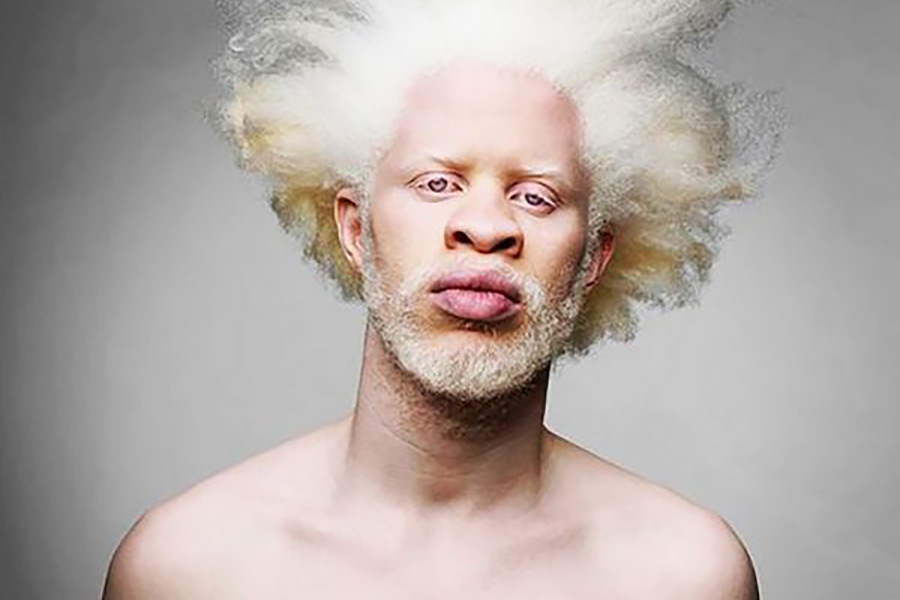
Maps for 𐤍𐤅𐤇 / nauakh
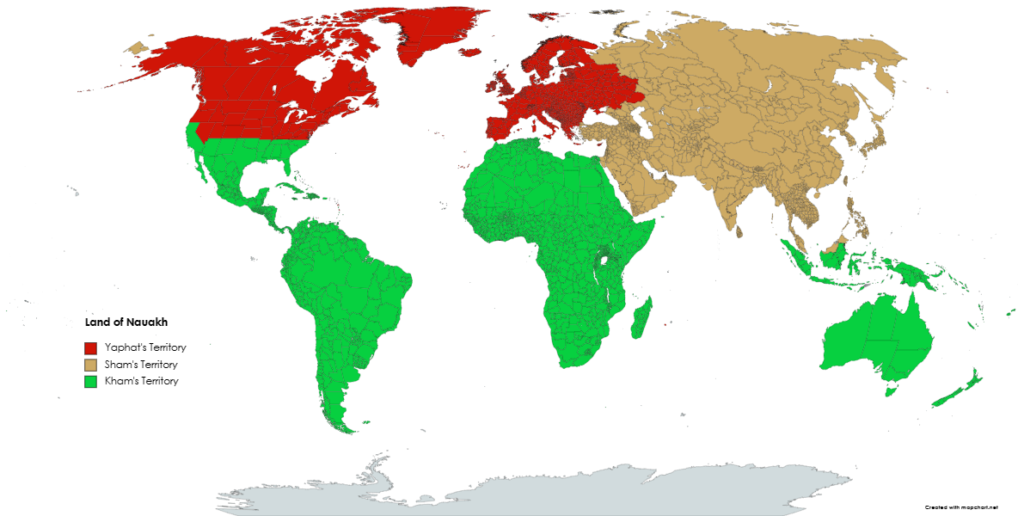
Definitions for /
When adding the 𐤉 (yad) to the end of a word, it creates a possessive of the original word. It can either signify “my…” or identify a member of a nation. For example, 𐤏𐤁𐤓 (Ābar) is the progenitor, but 𐤏𐤁𐤓𐤉 (Ābaray) is the singular descendant of him also known as a Hebrew.
| Language | Word | Transliteration | Pronunciation | Definition |
|---|---|---|---|---|
| Ābarayat | ||||
| English | ||||
| Hebrew | ||||
| Arabic | ||||
| Greek |
Images for /
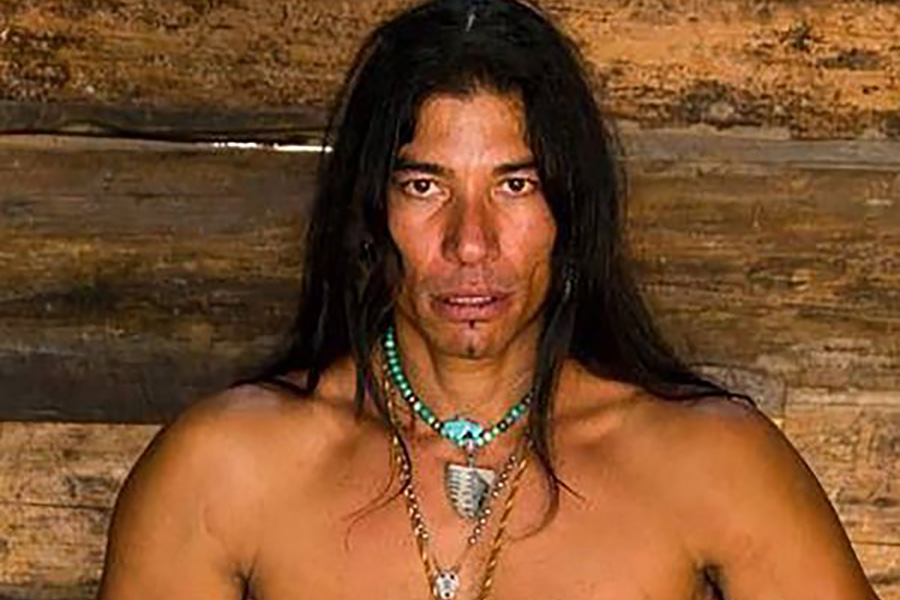
The 𐤉𐤐𐤕𐤉𐤌 (Yaphatayam)
The 𐤉𐤐𐤕𐤉𐤌 (Yaphatayam) are his descendants through his son 𐤉𐤐𐤕 (Yaphat). They are somewhat of a mixed multitude but are mostly known for the people who are indigenous to the colder territories of the planet including Russia through European sections such as Greece, Italy, Spain, Portugal, Britain, and others. They continue to the upper portions of the United States in North America and Canada. They are a mixture of people intermarrying with 𐤇𐤌𐤉𐤌 (Khamayam), 𐤔𐤌𐤉𐤌 (Shamayam), and 𐤍𐤐𐤉𐤋𐤉𐤌 (Naphayalayam).
Originally, the indigenous people were melanin-filled individuals, however, after years of mixing with 𐤀𐤃𐤅𐤌𐤉𐤌 (Adauamayam) from 𐤔𐤌𐤉𐤌 (Shamayam) and 𐤍𐤐𐤉𐤋𐤉𐤌 (Naphayalayam) they have gained a genetic anomaly that doesn’t allow them to produce melanin at adequate concentrations.

The 𐤔𐤌𐤉𐤌 (Shamayam)
The 𐤔𐤌𐤉𐤌 (Shamayam) are his descendants through his son 𐤔𐤌 (Sham). They are a mixed multitude of people due to the intermarrying with 𐤇𐤌𐤉𐤌 (Khamayam) and 𐤉𐤐𐤕𐤉𐤌 (Yapahtayam). In general, they are considered the indigenous Asiatic people who were melanin-filled in their time. Over time they became three groups Asiatic aka 𐤔𐤌𐤉 (Shamay)-only, Afro Asiatic aka 𐤇𐤌𐤉-𐤔𐤌𐤉 (Khamay-Shamay) mixture, and Euro Asiatic aka 𐤉𐤐𐤕𐤉-𐤔𐤌𐤉 (Yaphatay-Shamay) mixture.
Their original lands consisted of one border tracing Eastern Africa (known as the Middle East in the 21st century), Turkey, Georgia, and Middle and Eastern Russia. The opposite border was Russia’s Pacific Ocean border, Japan, the Philippines, and Malaysia.
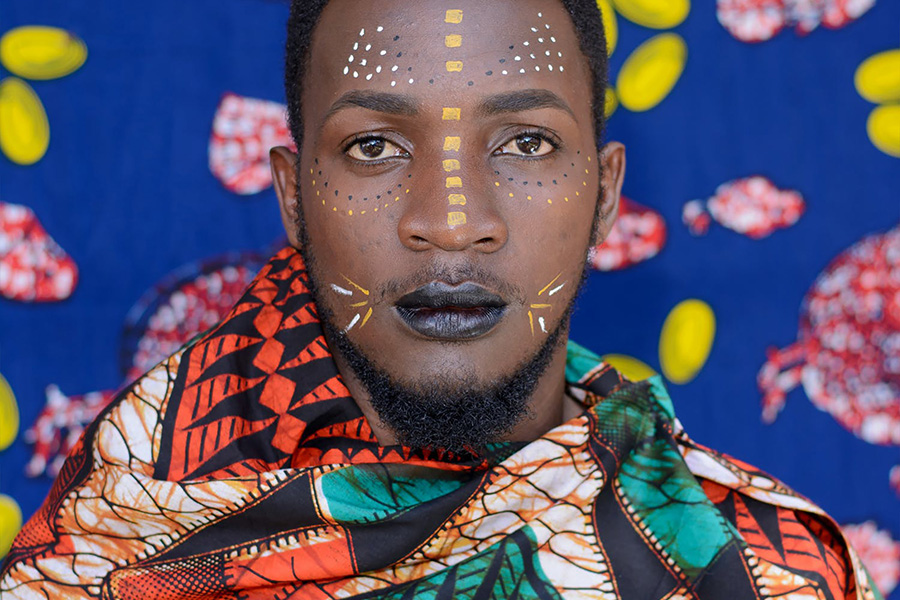
The 𐤇𐤌𐤉𐤌 (Khamayam)
The 𐤇𐤌𐤉𐤌 (Khamayam) are his descendants through his son 𐤇𐤌 (Kham). They are the indigenous people of Africa, South America, the lower portion of North America, and Australia. Within Africa, they were known as the Ethiopians, Egyptians, Libyans, and Canaanites. However, this does not include the Negro people who were enslaved during the Trans-Atlantic Slave Trade.
Definitions for /
When adding the 𐤌 (mayam) after the 𐤉 (yad) to the end of a word, it creates a plural of the original word. It can identify multiple members of a nation. For example, 𐤏𐤁𐤓 (Ābar) is the progenitor, but 𐤏𐤁𐤓𐤉𐤌 (Ābarayam) are the plural descendants of him also known as Hebrews.
| Language | Word | Transliteration | Pronunciation | Definition |
|---|---|---|---|---|
| Ābarayat | ||||
| English | ||||
| Hebrew | ||||
| Arabic | ||||
| Greek |
Images for /


Definitions for /
When adding the 𐤕 (tau) after the 𐤉 (yad) to the end of a word, it creates a plural of the original word. It identifies the language or a sign of a nation’s existence. For example, 𐤏𐤁𐤓 (Ābar) is the progenitor, but 𐤏𐤁𐤓𐤉𐤕 (Ābarayat) is the language of him also known as Paleo-Hebrew language.
| Language | Word | Transliteration | Pronunciation | Definition |
|---|---|---|---|---|
| Ābarayat | ||||
| English | ||||
| Hebrew | ||||
| Arabic | ||||
| Greek |
Images for /
| Character | Name | Transliteration | Pronunciation |
|---|---|---|---|
Classification
You can continue your studies of the words by viewing Strong’s entries for:



